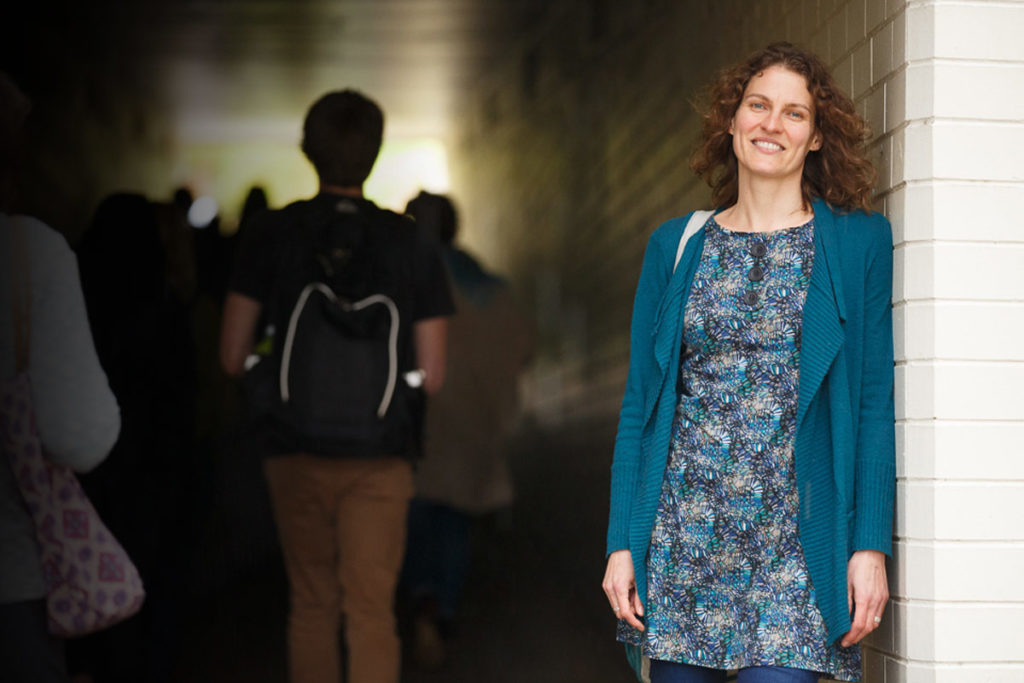
To mark Refugee Week (19-25 June), a new report highlights the need for a national refugee employment strategy that will better allow women from a refugee background to contribute to Australia’s labour market.
While industry calls for more expansive migration due to acute labour shortages exacerbated by the COVID-19 pandemic, a new report has identified refugee women as a valuable cohort of capable workers who are currently unable to get work in Australia.
The study, led by Flinders University and the University of Adelaide and funded by the federal Department of Social Services, found refugee women have worse employment outcomes than other groups of migrants, including refugee men, and are concentrated in occupations that are lower skilled and lower paid compared to jobs they performed in their countries of origin.
“There is an urgent need to address the myriad systemic barriers facing women from refugee backgrounds from accessing paid work,” says report lead author Associate Professor Anna Ziersch, a social scientist in Flinders’ College of Medicine and Public Health.
“These barriers prevent refugee women from being able to meaningfully and sustainably contribute to the Australian labour market and the broader community and to build a new life in Australia.
“As international migration recommences post-COVID and the race for global talent intensifies, it is essential that we do not ignore the potential contributions of women from refugee backgrounds already within Australia.”

The study analysed data from the Building a New Life in Australia longitudinal study, which collected a range of information from refugee women and men over their first five years in Australia. Interviews were then conducted with 42 women from refugee backgrounds who had settled in Adelaide, with the employment trajectories of 30 of these women followed over three years, as well as interviews and focus groups with employers and service providers.
“We found that while refugee-background women are highly motivated to find work in their fields of expertise prior to migration, they often get funnelled into low-skilled, low-wage work in industries such as hospitality, cleaning and aged care. This can be despite having academic and professional qualifications and work experience in their home country,” says Associate Professor Ziersch.
The authors say the situation stems from a lack of access to broader opportunities due to difficulties connecting to professional networks in Australia, a lack of flexibility in working hours, discrimination, and requirements from employers that they have local work experience.
Problems were further compounded by service provider targets, which see job seekers placed in any form of paid work, rather than allocating work suitable and appropriate to their level of skills and experience.
“It was also often the simple things that refugee women lacked which prevented them from accessing paid work, such as a driver’s licence, childcare support, language skills, knowing how to find out where job vacancies exist and how to write a resume,” says report co-author Associate Professor Clemence Due from the University of Adelaide.
“In addition, many women experienced discrimination both when seeking work, and on the job, including a lack of fair pay, reasonable working conditions, and accessing avenues for recourse if issues arose. Their determination to work also made them vulnerable to exploitation.”
The report sets out 16 recommendations on how to address the barriers and focus on facilitators to employment for refugee women.
The recommendations include adjustments to the various forms of services available to refugee women, ways for employers to create and manage employment opportunities for refugee women, and policy and regulatory reform to address the systemic barriers facing refugee women from engaging in paid work.
“There are already a number of services out there addressing these issues, we just need to ensure they can continue and expand,” says Associate Professor Ziersch.
“The services that are most successful are those that can address the barriers to employment, as well as other settlement stressors, and support women even after employment.
“Our study found inspiring examples of proactive employers with innovative workplace practices to support refugee women once they found employment. These employers didn’t just expect refugee women to sink or swim in the workplace but took active steps to support their employment, especially during the initial stage.”
Against the backdrop of recent events in Afghanistan and Ukraine, along with many other parts of the world experiencing war and displacement, the authors say this is a time of tremendous opportunity for refugee women as Australia rebuilds its economy and workforce after the upheaval of the pandemic.
“Women from refugee backgrounds are highly motivated to work and this drive, combined with women’s skills and capacities, is a strength and a resource that employers can connect with,” says Associate Professor Ziersch.
“However, there is also a risk that these women will be left behind without an explicit focus on supporting their participation in the workforce. We need a national refugee employment strategy and a commitment to building comprehensive, targeted and personalised support for women from refugee backgrounds in all facets of their life.”
Read the full report and policy brief at the links.

